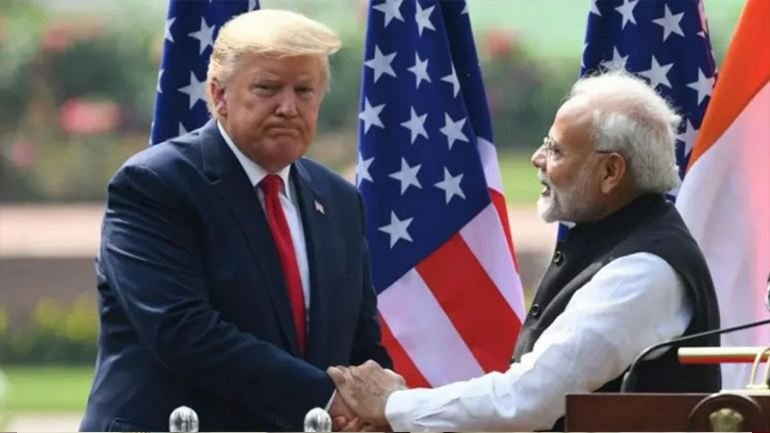

India's Chief of Defence Staff (CDS), General Anil Chauhan, stated on Tuesday that the interconnected interests of China, Pakistan, and Bangladesh could impact regional stability. He made these remarks while speaking at the launch event of the Observer Research Foundation’s (ORF) Foreign Policy Survey 2024. General Chauhan also highlighted the growing challenges India faces in the Indian Ocean Region. Without directly naming China, he said that “some are expanding their influence in the region by offering loans.” He emphasized that, “Governments in South Asia are continuously changing, and significant ideological challenges are emerging. In addition, the intertwined interests of China, Pakistan, and Bangladesh are increasing security concerns.” General Chauhan emphasized that India must prioritize enhancing its capabilities and establishing reliable international partnerships. India needs to strengthen its potential through both local and global expertise. Only by promoting economic growth and technological advancement can we strengthen our national security.”
Defense analyst Rahul Bedi stated that CDS General Anil Chauhan’s concerns are valid, and many issues have become clearer following the recent four-day conflict with Pakistan. Rahul Bedi emphasized that “General Chauhan was referring to China and Pakistan.” Just last week, Lieutenant General Rahul R. Singh, Deputy Chief of Army Staff, remarked that China supported Pakistan against India. What was previously described as a "two-front war" is now being termed a "strong single-front war." According to Bedi, “Pakistan is receiving defense equipment, air defense systems, satellite imagery, and intelligence from China. What’s alarming for India is that Bangladesh now appears to be joining this China-Pakistan alliance against India.” This means India now faces threats from three fronts: the western border (Pakistan), the northern border (China), and now the eastern border (Bangladesh). He added that the biggest concern is that Bangladesh, with Chinese collaboration, is developing an airbase, which poses a strategic threat to India’s Siliguri Corridor—commonly referred to as the “Chicken’s Neck.” This narrow corridor, just 22 kilometers wide, is the only land link connecting northeast India to the rest of the country. This corridor also borders Bangladesh and Nepal, while Bhutan and China are located only a few kilometers away. Last year, there was widespread speculation on social media that Bangladesh was reviving an old airbase in Lalmonirhat with Chinese assistance. This is the same airbase Rahul Bedi was referring to. It lies about 15 kilometers from India’s border and approximately 135 kilometers from the Siliguri Corridor.

Rahul Bedi says, "India is now facing threats from three fronts. One from the western border, the other from the northern border, and after the arrival of Bangladesh, there is also a threat from the eastern border."
Bangladesh is often referred to as an “India-locked” country, as 94% of its territory is bordered by India. The two countries share a 4,367-kilometer-long border, which accounts for 94% of Bangladesh’s international boundary. Given this geography, Bangladesh has historically relied on India for security and trade. It also plays a vital role in facilitating access to India’s northeastern states, providing cheaper and easier connectivity to those regions, and helping link them to the rest of India. Manoj Joshi, Senior Fellow at the Observer Research Foundation (ORF) think tank, stated: “If such a long border turns hostile against India, we can understand the scale of the threat.” He further noted, “Just last month, a meeting was held in Kunming, China, involving Pakistan, China, and Bangladesh, where discussions were held about forming a new regional bloc. That’s why General Chauhan is expressing concern about regional stability and security.” Joshi emphasized, “If you're a military or economic power, you can influence the foreign policies of neighboring countries. This could have happened with Bangladesh, but India is neither a strong military nor an economic power. If we had strength in either area, our neighbors would heed our concerns.” He also added, “Following Operation Sand Dune, the United States has begun giving significant importance to Pakistan.” According to Joshi, “Donald Trump invited Pakistan’s Field Marshal Asim Munir to lunch at the White House. U.S. CENTCOM Commander General Michael Kurilla called Pakistan a key ally in the war on terror. America's tilt is toward Pakistan. Even Russia’s interest in Pakistan is growing.”

Joshi says, 'America's tilt is definitely towards Pakistan'
Manoj Joshi believes that “India should stop using issues like terrorism for domestic politics.” He adds, “The Modi government needs to separate foreign policy from domestic political agendas. For example, the G-20 summit was portrayed as a huge achievement, but we need less showmanship and more concrete actions on the ground. Even Bhutan did not support Operation Sand Dune.” Defense analyst Uday Bhaskar thinks that CDS General Anil Chauhan has presented a significant assessment of India's complex security challenges. He says, “Indian strategic planners had so far been focusing on two-front threats, but now they may be dealing with a three-front challenge. China seems to be successfully drawing Bangladesh into its camp alongside Pakistan. This possibility wasn’t seriously considered before the likely departure of Sheikh Hasina.” Rahul Bedi adds, “Trump’s stance has boosted Pakistan’s credibility. The U.S. invited Pakistan’s Field Marshal Asim Munir for lunch at the White House. Ten days later, Pakistan’s Air Chief also visited the U.S. It is being speculated that America might even resume arms supplies to Pakistan.”
Rahul Bedi says, “Pakistan’s geographical location is considered highly strategic. It shares borders with China, Afghanistan, Iran, and the Central Asian countries. This makes it a critical location. Moreover, Balochistan has rare earth minerals, which are in global demand. After Operation Sand Dune, it became clear that aside from Israel, no one supported India. International organizations condemned terrorism, but not Pakistan.” When asked whether India has made any mistakes in this situation, Bedi replied, “A prominent Indian diplomat told me that India talks a lot but does very little in practice.” “India has a strong army and navy, but when officials from countries like Japan and the U.S. come and observe things on the ground, the reality looks very different,” he added. Professor Sreeradha Datta Pathak, who teaches China Studies at O.P. Jindal University, also believes that Bangladesh joining China and Pakistan raises the security threat for India. She says, “China is working to make the Lalmonirhat air base in Bangladesh operational again, which would be a serious threat to Indian security. Naturally, India is preparing for this.” “We can’t just wait for a change of government in Bangladesh. China is trying to keep India entangled with its neighboring countries to avoid facing any direct challenge,” she emphasized. However, Professor Pathak does not believe that Pakistan’s global reputation has improved. She states, “We can't expect too much from the U.S. The West’s stance on terrorism has always been like this. Israel was the only country that said India had the right to defend itself. Unfortunately, we were part of a BRICS resolution that condemned Israel.”
 Rahul Bedi says, "The US invited Pakistan's Field Marshal for lunch at the White House. Ten days later, the head of the Pakistani Air Force also visited the US. It is also being said that the US may restore arms supplies to Pakistan."
Rahul Bedi says, "The US invited Pakistan's Field Marshal for lunch at the White House. Ten days later, the head of the Pakistani Air Force also visited the US. It is also being said that the US may restore arms supplies to Pakistan."
Powered by Froala Editor